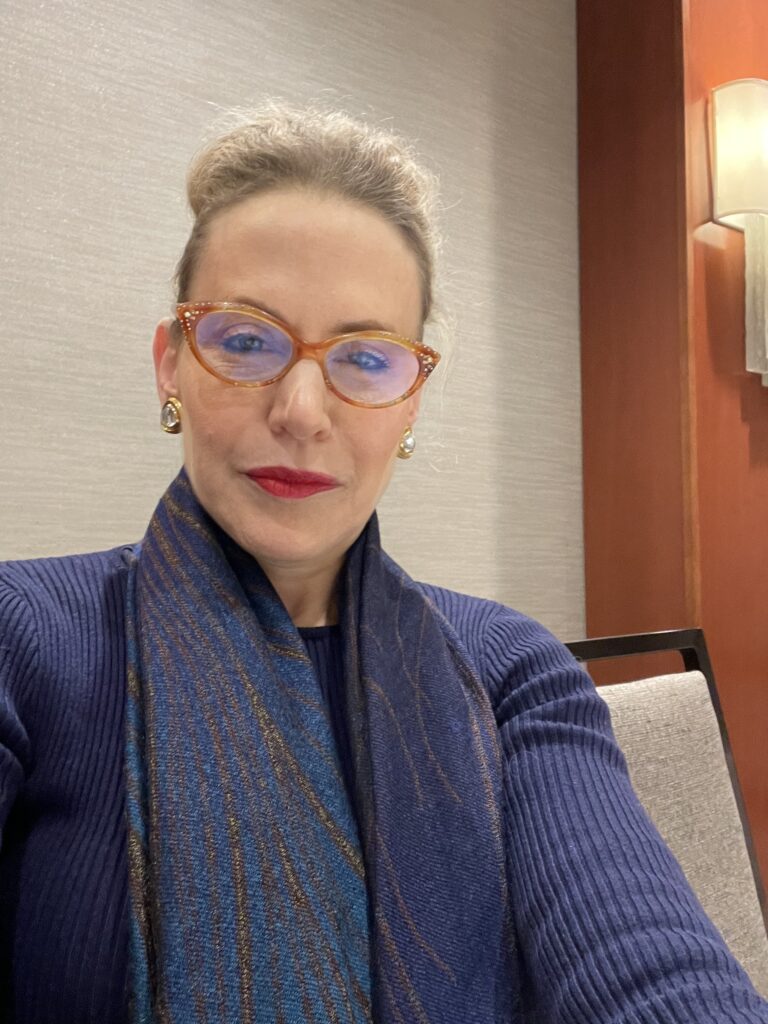Manya Steinkoler

Professor
English
EMAIL: msteinkoler@bmcc.cuny.edu
Office:
Office Hours: By appointment
Phone: +1 (212) 220-8000;ext=5242
Manya Steinkoler’s main scholarly research is in Lacanian psychoanalysis, modern literature, and film. Her most recent books concern gender and psychoanalysis. She has written on comedy and madness from a Lacanian perspective. She is working on a book on new understandings of narcissism in our contemporary era. She writes on film and contemporary culture, running the Jane Young Film Series at BMCC. She translates from French and is a passionate lover of languages studying Spanish, Italian, Hebrew, German and Greek. She is also a trained amateur opera singer.
Expertise
Degrees
Post Doctoral Studies, Lacanian Psychoanalysis, Paris
University of California, Irvine
PhD, Comparative Literature (1989 – 1996)
Brandeis University
MA, Comparative Literature (1989 – 1995)
Courses Taught
- English Composition is the standard first-year writing course. The course introduces students to the academic writing process through the study of culturally-diverse nonfiction prose. Emphasis will be placed on developing thesis-driven responses to the writing of others, practicing revision,
following the conventions of MLA style, and completing a research project. By its successful conclusion, students will be ready for English 201 and for the writing they will be asked to do in advanced courses across the curriculum.
Prerequisite: Writing PI 65+ - This is a course that builds upon skills introduced in English 101. In this course, literature is the field for the development of critical reading, critical thinking, independent research, and writing skills. Students are introduced to literary criticisms and acquire basic knowledge necessary for the analysis of texts (including literary terms and some literary theory); they gain proficiency in library and internet research; and they hone their skills as readers and writers. Assignments move from close readings of literary texts in a variety of genres to analyses that introduce literary terms and broader contexts, culminating in an independent, documented, thesis-driven research paper. By the conclusion of English 201, students will be prepared for the analytical and research-based writing required in upper-level courses across the curriculum; they will also be prepared for advanced courses in literature. Prerequisite: ENG 101
- This course acquaints students with the wide range and varied forms of the short story as it developed in America, Europe, and other continents. Readings will include works by male and female authors of different periods and nationalities, and some attention may be paid to the historical development of the short story as a genre, as well as the cultural contexts in which the assigned stories were written. Pre-Requisite: ENG101 and ENG201 or ENG121
- This course will focus on a specific theme, concept, cultural milieu, or major author to be announced in advance. Topics for the following semester will be made available by the English Department during registration. Each section of the course will cover in-depth a single special topic, such as one of the following: the Harlem Renaissance, Literature and the Environment, Utopian and Dystopian Literature, Literature and Medicine, The Beat Generation, Literature of the Working Class, Satire in the 18th Century, Censorship and Literature, Literature of Immigration, War in Literature, Madness and Inspiration in Literature, Gay and Lesbian Literature, and Women in Shakespeare. Prerequisites: ENG 101 and 201, or ENG 121
- Introduction to Literary Studies is an inquiry into what it means to study literature, involving close reading, critical and creative analysis of a wide variety of prose fiction, drama, and poetry, and informed by an introduction to some of theoretical issues currently invigorating literary studies. In addition to works of literature, students will read critical and theoretical works. This course combines a study of literature with continued training in clear and effective expression. It is designed for prospective Writing and Literature majors and other interested students. Prerequisite: ENG 101 or 121 Corequisite: ENG 201
- This course presents a global approach to literature by introducing prose, poetry and drama representative of different cultures and historical periods, from the 17th century to the present. Students engage in close readings of individual texts and contextual/comparative analyses. Written and spoken activities are designed to enhance students? appreciation of literature and their awareness of the ways it arises from, shapes, and reflects the world?s cultures.
- This is a film history and appreciation course, with special emphasis on style, techniques, genres and themes. During one double period in which a full-length film is shown, students are encouraged to take notes. In the next class the film is discussed and analyzed. Students will read about the development of the cinema and write essays about well-known films. Pre-Requisite: ENG101 and ENG201 or ENG121
- This course aims to acquaint students with representative Judaic works translated from Hebrew or written in English and ranging from Biblical times to the present. The selections concentrate on those writings which have been most influential in the development of Western literature and which best convey Jewish thought, feeling, and experiences, especially in their universal application. The readings will be supplemented by exposure to Judaic music and art, including visits to museums and galleries, individual student projects, and guest lectures. No prior knowledge of the Hebrew language or Jewish culture or literature is required. Prerequisites: ENG 101 and 201, or ENG 121
- European social and political ideas as they are reflected in the works of such novelists as Gide, Silone, Koestler, Camus, Sartre, Mann, and Kafka are examined and analyzed. Prerequisites: ENG 101 and 201, or ENG 121
Research and Projects
Publications
Prof Steinkoler has edited three volumes with Patricia Gherovici, Lacan On Madness: Madness Yes You Can’t (Routledge: 2015) and Lacan, Psychoanalysis and Comedy (Cambridge University Press: 2016) and Psychoanalysis, Gender and Sexualities: From Feminism to Trans* (Winner of the 2023 Gradiva Award for Best Edited Book; Routledge: 2023.)
Prof Steinkoler had edited with Vanessa Sinclair, Psychoanalysis and Violence (Routledge 2018)
Prof Steinkoler has co-authored with Jessica Datema Revisioning War Trauma in Cinema: Uncoming Communities (Lexington Press 2019). She studied Lacanian psychoanalysis in Paris.

